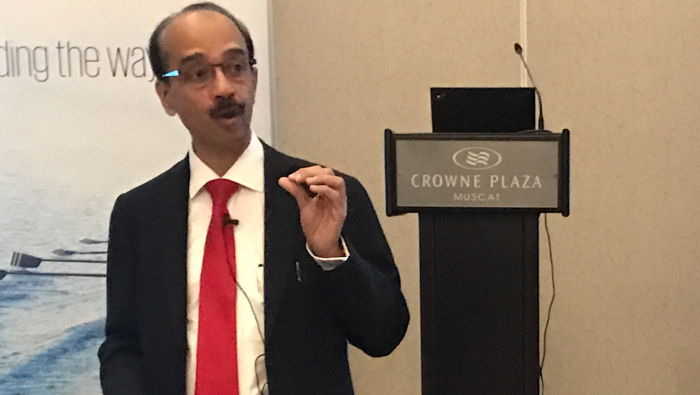
Muscat: Possessing a tax card has been made compulsory for all companies, which are required to pay corporate income tax in Oman as per the amended tax law.
The amended tax law has introduced the tax card, which will be valid for a specified period and will then need to be renewed.
“Every tax payer is required to quote the tax card number in all their correspondence,” said Ashok Hariharan, partner and head of tax for KPMG Lower Gulf. He was addressing a seminar on the recent amendments in tax law and its implications for the corporate sector.
The new tax card will also help the corporate sector and the government when the authorities introduce value added tax, which is expected by next year.
An application for a tax card has to be submitted when the taxpayer initiates the procedures for registering the commercial activity with the relevant authorities. The tax card number has to be mentioned in all contracts invoices and correspondence.
“If you are dealing with another business, you come to know whether you are dealing with a business that is registered for tax purposes. If you find that you are dealing with a business that does not have a tax card number, you have to assume that they do not have a permanent establishment in Oman. And therefore, you need to deduct a 10 per cent tax at source.”
Ministries and other government departments will have to obtain a copy of the tax card before dealing with any taxpayer. All documents relating to transactions by that person with any government entity should be accompanied by a copy of the tax card. Also, the government entity must notify the tax authority of any non-compliance within the time to be stipulated in the executive regulations. Failure to comply with tax card provisions will result in the imposition of a fine up to OMR5,000.
300,000 registered firms
Hariharan also noted that although more than 300,000 companies are registered with the Ministry of Commerce and Industry, only a fraction files tax returns with the department.
The authorities are also moving to a self-assessment regime since only a sample of returns will be assessed. KPMG’s seminar was attended by 100 senior C-suite professionals to understand the implications and intricacies involved in the sweeping changes, which were introduced last week to Oman’s income tax law.
Hariharan hosted the seminar, presenting his detailed insights into the key amendments, including the much debated and far reaching change pertaining to withholding tax on fees for services, interest payments and dividends on shares and its applicability in several domestic and international tax scenarios and real life situations, such as cost sharing arrangements, secondments of staff, revenue and risk sharing arrangements and reinsurance contracts.
He explained how the latest amendments may result in increasing the costs of businesses operating in Oman, given that many foreign taxpayers will expect the taxes imposed on their incomes to be borne by local businesses. He also covered his analysis of many procedural amendments that have been introduced in the tax law and how the government is gearing up to shift the prevalent tax compliance regime in Oman from a tax audit approach towards a self-assessment approach, involving stricter penalty and punishment provisions.
Some of the other changes in tax law that Hariharan touched upon during his presentation included the 3 per cent tax regime for micro establishments, the requirement of a tax card by all taxpayers, removal of tax exemptions and tax treatment of Islamic finance transactions, on which KPMG had acted as advisors to the Government of Oman.
The audience, comprising senior management personnel, including key decision makers in the tax, finance and legal functions of their respective organisations, utilised the opportunity to ask many questions and discuss real-life situations in their businesses to understand how the changes might impact the way they presently do business in Oman and how that may need to undergo a change in coming times.
Lauding Hariharan’s insights, they appreciated KPMG’s efforts to keep the taxpayer community informed through a detailed analysis of the changes, their impact on real life business situations and the emerging uncertainties that prevail in connection therewith.